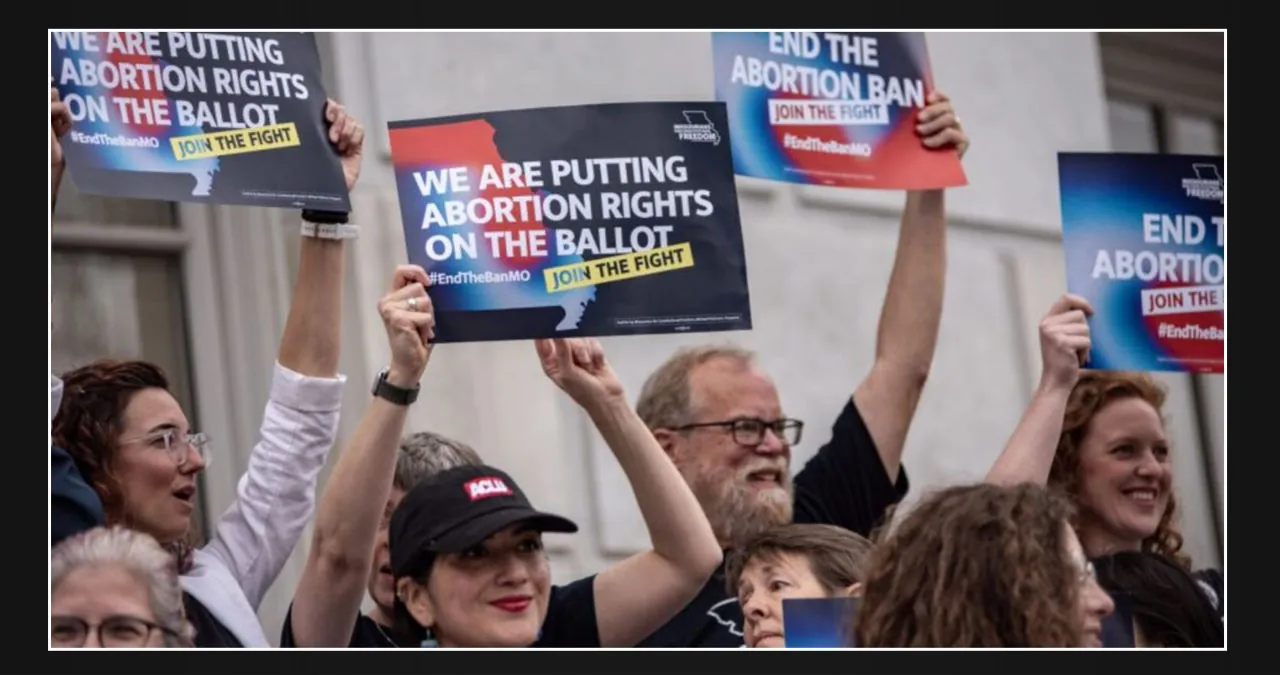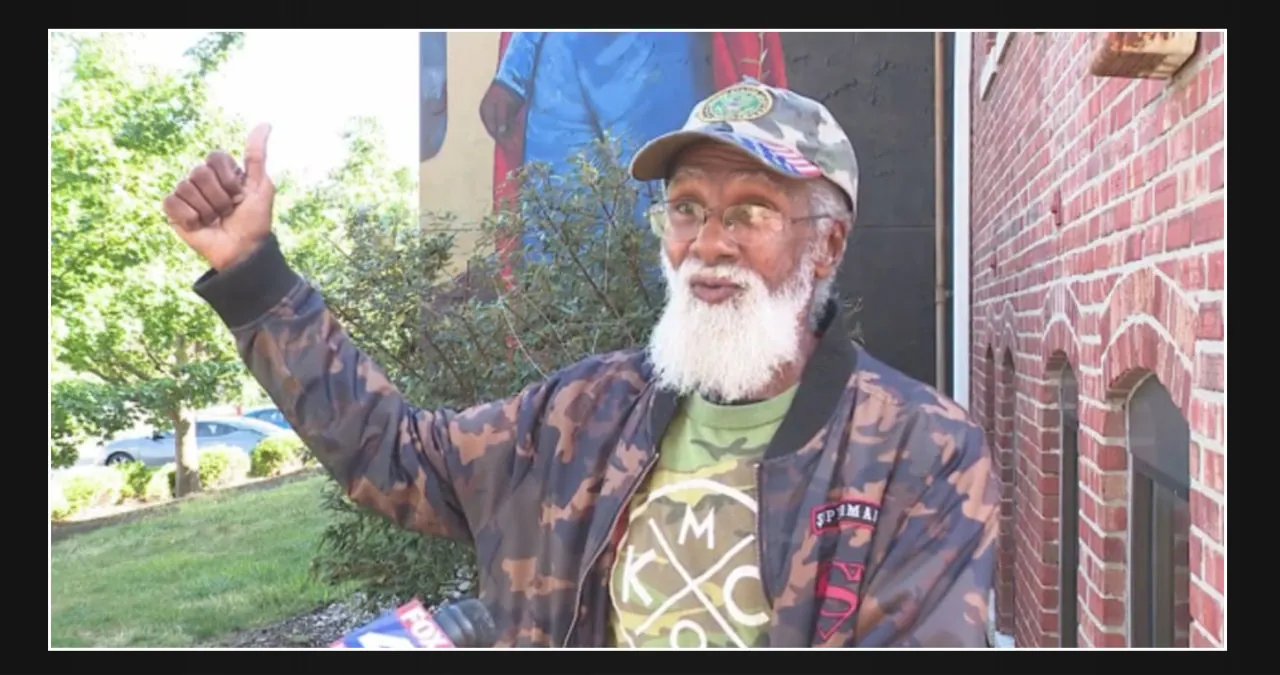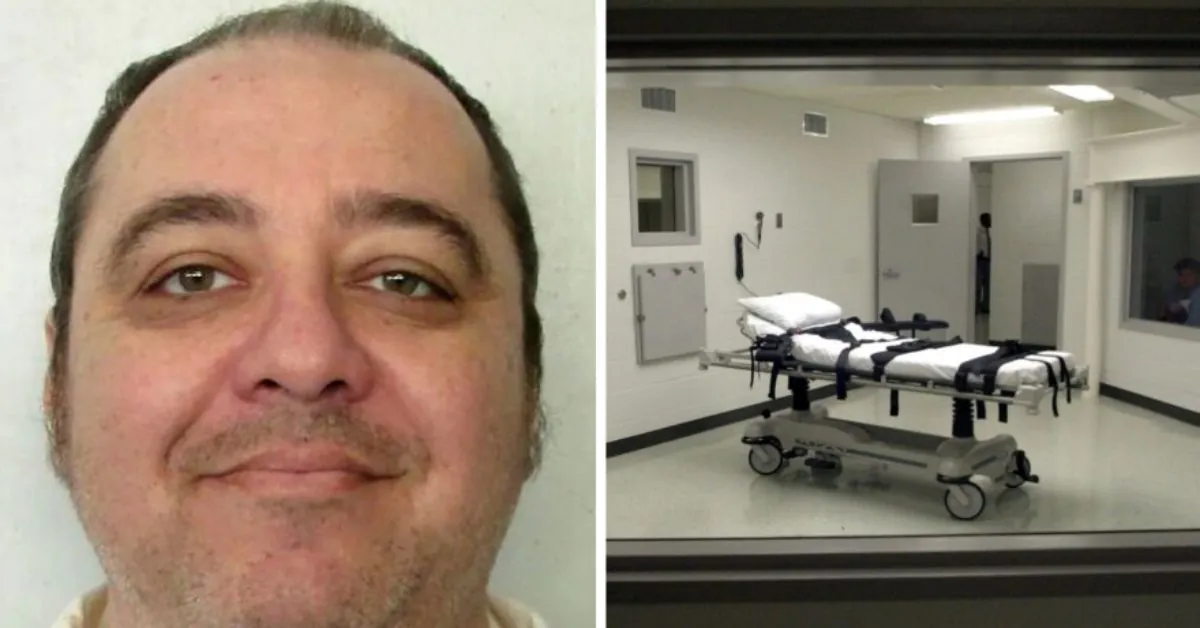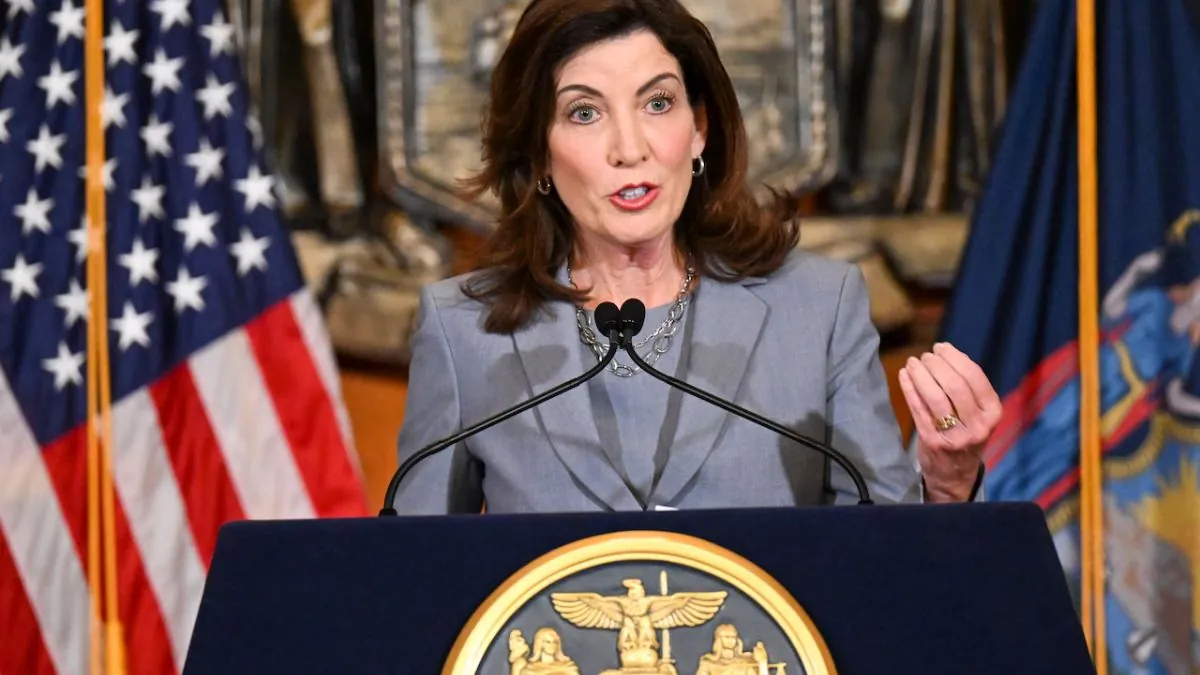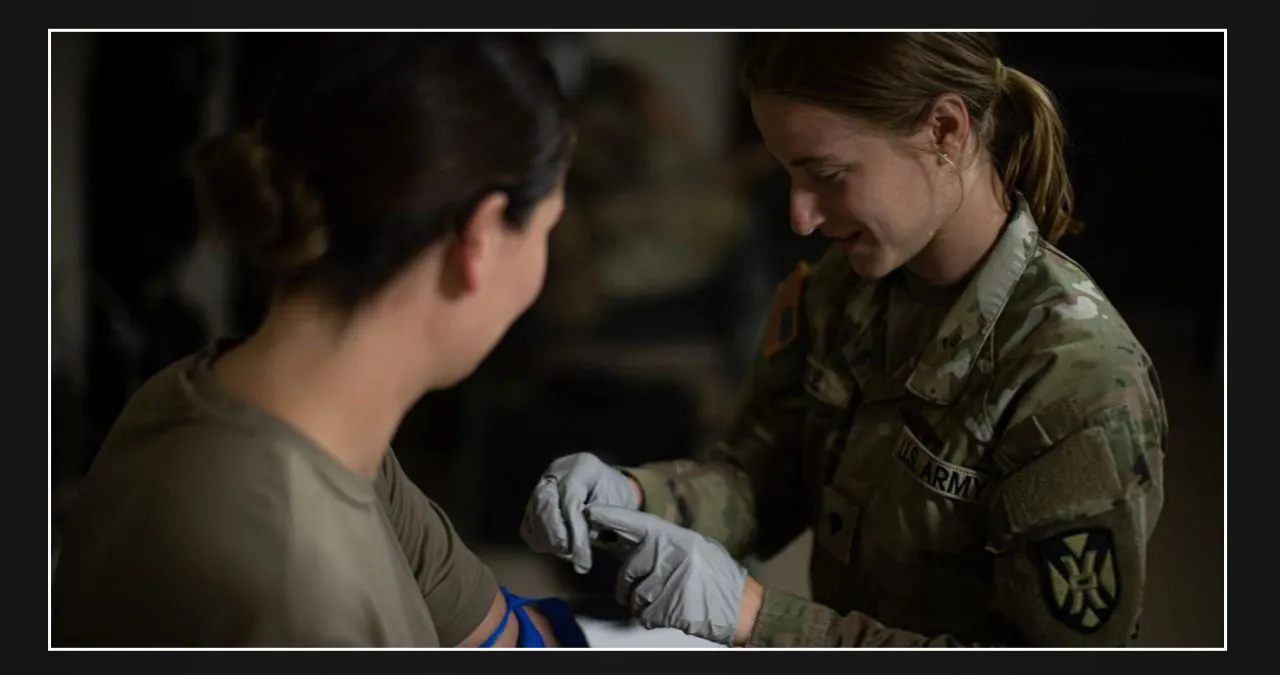According to Wolff, the amendment, which aims to legalize abortion until fetal viability, has encountered numerous legal challenges since it was proposed as an initiative petition 18 months ago. However, the state’s highest court recently decided that the measure should remain on the ballot, marking the end of the extensive litigation process.
In the past, residents in six states have cast their votes in favor of safeguarding or expanding abortion rights. This includes states like Kansas, Ohio, and Michigan. Notably, Missouri is one of the ten states where the issue of abortion will be decided through a ballot this year.
Amendment 3 aims to legalize abortion and safeguard reproductive rights, including the use of birth control, until the fetus is capable of independent survival.
If Amendment 3 passes, the attempts made in Missouri’s higher courts, though ultimately unsuccessful, could serve as a sign of potential future battles.
Sean Nicholson, a seasoned progressive activist with experience in multiple initiative petition campaigns, expressed his thoughts on the recent circuit court ruling that posed a threat to the inclusion of Amendment 3 on the ballot. He referred to the ruling as a prime example of “creative lawyering.”
Nicholson expressed his lack of surprise at the extent to which politicians are willing to go. He believes that deep down, they are frightened of a straightforward vote on Amendment 3 and will do whatever it takes to evade the repercussions of allowing voters to have their say.
State Senator Mary Elizabeth Coleman, a Republican from Arnold, is one of the individuals who filed a lawsuit in an effort to prevent Amendment 3 from appearing on the ballot. According to her, regardless of the outcome in November, there is still a challenging journey ahead.
In the courts
In March 2023, Dr. Anna Fitz-James, on behalf of the coalition behind the campaign, filed 11 iterations of what is now known as Amendment 3. Republican elected officials in the state wasted no time in engaging in political maneuvering to prevent the abortion-rights amendment from appearing on the ballot.
Missouri Attorney General Andrew Bailey declined to accept State Auditor Scott Fitzpatrick’s fiscal note summary, which estimated the potential public cost of the amendment. Bailey disagreed with the estimate of $51,000 and believed it should be around $6.9 trillion, pressuring Fitzpatrick to revise his evaluation.
After nearly twice the expected duration, Cole County Circuit Judge Jon Beetem finally ordered Bailey to certify the measure, as per Fitzpatrick’s estimate. The Supreme Court ultimately sided with Fitzpatrick in this ruling.
Shortly after, supporters of Amendment 3 filed a lawsuit against Secretary of State Jay Ashcroft regarding the language used in the ballot summary. The original language asked Missourians if they wanted to “allow for dangerous, unregulated, and unrestricted abortions, from conception to live birth.”
The campaign behind the amendment, known as Missourians for Constitutional Freedom, began collecting signatures in January to officially kick off their efforts. They attributed the delay to months of litigation leading up to this point.
The campaign exceeded expectations by submitting over 380,000 signatures to the secretary of state’s office, despite having a May deadline to collect just 171,000 signatures from residents across six of the eight congressional districts in Missouri.
Despite efforts to discourage Missourians from signing the initiative, such as a “decline to sign” campaign, the circulation of fliers urging withdrawal of signatures, and unsubstantiated concerns about identity theft, people still showed support by signing the initiative.
GOP lawmakers faced a setback in their efforts to pass a key piece of legislation. Specifically, they were unable to raise the threshold for passing initiative petitions. This was partly due to a significant filibuster by Senate Democrats, which set a new record.
According to the speaker, there has been a rise in attacks on the ballot measure process and attempts by politicians to alter the rules in order to hinder citizens from initiating these issues. The speaker specifically mentions reproductive freedom as an example.
The Supreme Court quickly reviewed Limbaugh’s ruling, but Ashcroft caused a stir by declaring that he was revoking his previous decision to certify the measure. This was an unprecedented move aimed at retracting his earlier statement that the measure had met all the necessary criteria to be included on the ballot.
According to Wolff, the litigation helps to strip away the political aspect and focus on the legal requirements and their application. He also believes that while passing a constitutional amendment in the future may still be challenging, there is now a clearer understanding of the process ahead.
According to Alice Clapman, a senior counsel for voting rights at the Brennan Center for Justice, Ashcroft’s decertification of the ballot initiative was an unlawful act.
According to her, the incident was just one of several “particularly brazen” efforts to block abortion ballot initiatives, which is indicative of a larger trend observed throughout the United States.
Ashcroft refuted Clapman’s portrayal of him as “patently false,” asserting that his decision was justified until it was ultimately overturned by the Supreme Court.
Ashcroft expressed his disappointment with the rulings, stating that he felt disheartened. However, he remains hopeful that if Amendment 3 is passed, it will bring about both celebration and a sense of urgency among certain individuals. He draws a parallel to the year 1973 when the Roe v Wade decision was made, suggesting that similar efforts will be made to ensure the protection of women and children.
Missouri is not the only state where the battle over an abortion amendment has unfolded in unconventional ways.
In Florida, voters have experienced the intrusion of state police knocking on their doors to inquire about their involvement in signing a petition advocating for the restoration of abortion rights in the state. Furthermore, a state health care agency went as far as creating a website to publicly denounce the proposed amendment. Florida Governor Ron DeSantis has also been actively vocal in expressing his opposition to the initiative.
Missouri has the opportunity to make history by becoming the first state to overturn a statewide ban through a popular vote, if Amendment 3 is approved by the voters.
In the past ten years, Republican lawmakers have enacted legislation specifically aimed at restricting access to abortion. These measures have included imposing mandatory pelvic exams for medication abortions and implementing a 72-hour waiting period between the initial appointment and the procedure. The intention behind these laws was to create additional barriers for individuals seeking abortions.
According to data from the Missouri Department of Health and Senior Services, the number of abortions performed in the state has significantly decreased over the past decade. In 2010, there were over 5,000 abortions, but by 2020, this number had dropped to just 167 as providers closed their doors. Furthermore, between the Supreme Court decision in June 2022 and March 2024, there were only 64 abortions performed under the state’s emergency exemption.
According to a recent study conducted by the Guttmacher Institute, a research group focused on reproductive rights, it was found that in 2023, a total of 8,710 individuals from Missouri traveled to Illinois for the procedure, while 2,860 individuals opted to go to Kansas. It is worth noting that both Illinois and Kansas still uphold the legality of this procedure.
What’s next
Amendment 3 continues to enjoy strong support in recent polls.
State Senator Tracy McCreery, a Democrat from Olivette and a staunch advocate for abortion rights, emphasizes the significance of Missouri’s recent history.
According to her, the legislature has a track record of overturning the will of the people.
In 1940, when the nonpartisan court plan to select appellate judges was approved by Missourians through an initiative, the legislature attempted to repeal it by putting a proposition on the ballot two years later. However, the voters rejected this attempt.
In 2010, voters gave their approval to a new law that aimed to ban puppy mills by introducing regulations for dog breeders. However, the following year, the legislation underwent some changes, including the removal of the cap on the number of dogs that breeders could have. This effectively reversed the citizen-led statutory change.
In 2018, the citizens of Missouri successfully passed an amendment called “Clean Missouri,” which aimed to ensure partisan fairness in drawing legislative districts. However, two years later, the legislature proposed an amendment that repealed the Clean Missouri amendment.
In 2020, Medicaid expansion was approved by Missouri voters. However, lawmakers initially refused to allocate funds for it, until the Missouri Supreme Court ruled that they had no other option.
She expressed her anticipation of more mischief in the future.
In his observation, Wolff noted that he has never witnessed elected officials come together so strongly to oppose a ballot measure. Not even the highly controversial embryonic stem cell research amendment of 2006 encountered such widespread resistance.
However, the stem cell amendment imposed certain limitations on the scope of research that could be carried out. As a result, these restrictions presented insurmountable obstacles for researchers, preventing them from making any progress in their studies.
According to Wolff, it will be more challenging to find ways to work around Amendment 3. However, he believes that those who oppose the amendment will continue to be creative in finding loopholes, as they have already demonstrated. He states that this is a characteristic of a democratic republic.

